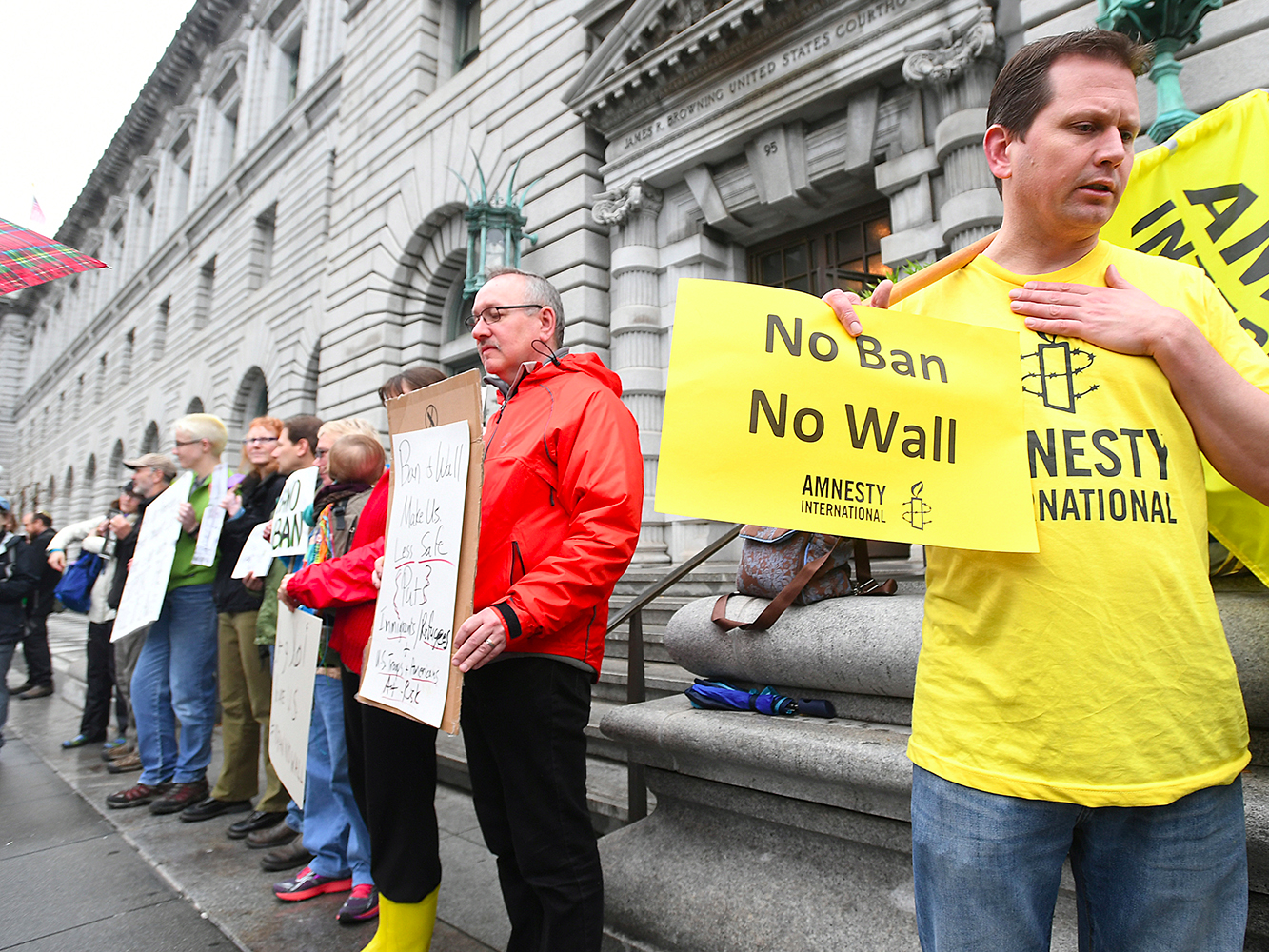The Ninth Circuit Court of Appeals on Tuesday heard oral arguments from the Department of Justice on behalf of President Donald Trump in the government’s bid to revoke a suspension of Trump’s immigration ban.
The suspension issued by a federal judge in Seattle on Friday effectively reversed Trump’s executive order that banned travel to the US for 90 days by most people from Iran, Iraq, Libya, Somalia, Sudan, Syria, and Yemen.
In their oral argument, lawyers for the DOJ requested the temporary 90-day ban to review existing policies and to further prevent what they described as “terrorist infiltration into our country.”
DOJ officials attempted to justify Trump’s executive order based on alleged “significant terrorist activities” they claimed the targeted countries harbored.
“Both Congress and the administration made determinations that these seven countries posed the greatest risk of terrorism … [Our] executive order relies on that determination,” said August Flentje, a trial attorney in the DOJ’s civil division.
When asked for examples of any real risk from terrorist activities, Flentje mentioned the al-Qaeda-linked al-Shabab group in Somalia.
Washington Solicitor General Noah Purcell, arguing on behalf of his state and Minnesota which both brought cases against the Trump administration, asserted that Trump's executive order hurt state-tax revenue and harmed longtime US residents, including university students and medical professionals who traveled from the seven affected countries.
The arguments from both parties were heavily scrutinized by the three-judge panel, prompting Flentje at one point to say "I'm not sure I'm convincing the court."
The case of the State of Washington v. Trump is being reviewed by the Ninth Circuit Court of Appeals, which said earlier Tuesday that a decision would come sometime this week.
Trump has said his administration was prepared to take the matter to the Supreme Court, if necessary.

